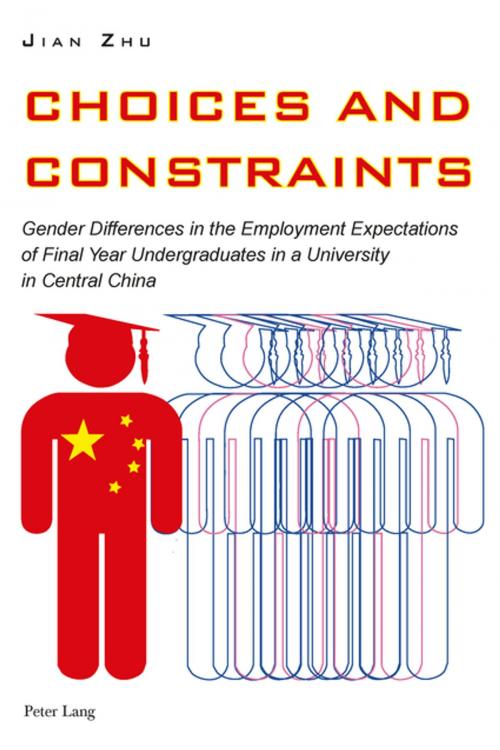Choices and Constraints
Gender Differences in the Employment Expectations of Final Year Undergraduates in a University in Central China
Nonfiction, Social & Cultural Studies, Social Science, Demography, Reference & Language, Education & Teaching, Educational Theory, Philosophy & Social Aspects| Author: | Jian Zhu | ISBN: | 9783035399325 |
| Publisher: | Peter Lang | Publication: | February 11, 2014 |
| Imprint: | Peter Lang AG, Internationaler Verlag der Wissenschaften | Language: | English |
| Author: | Jian Zhu |
| ISBN: | 9783035399325 |
| Publisher: | Peter Lang |
| Publication: | February 11, 2014 |
| Imprint: | Peter Lang AG, Internationaler Verlag der Wissenschaften |
| Language: | English |
This book seeks to investigate gender differences in final year undergraduates’ employment expectations of their starting jobs, including salary, occupational and working region expectations, and to identify factors that have contributed to gender differences in these expectations. It employs an on-site self-completion questionnaire survey and a follow-up semi-structured interview carried out in a university in Central China. The study adopts the conceptual perspective of ‘choice and constraint’, which means that male and female final year undergraduates are able to make their own choices towards employment expectations; however, their choices of employment expectations are limited by a number of constraints. Empirical studies find that there are gender differences in employment expectations. This study further reveals the influence of gendered economic roles, experienced or perceived sex discrimination in China’s graduate labour market job preferences and parents’ expectations on those gender differences in employment expectations.
This book seeks to investigate gender differences in final year undergraduates’ employment expectations of their starting jobs, including salary, occupational and working region expectations, and to identify factors that have contributed to gender differences in these expectations. It employs an on-site self-completion questionnaire survey and a follow-up semi-structured interview carried out in a university in Central China. The study adopts the conceptual perspective of ‘choice and constraint’, which means that male and female final year undergraduates are able to make their own choices towards employment expectations; however, their choices of employment expectations are limited by a number of constraints. Empirical studies find that there are gender differences in employment expectations. This study further reveals the influence of gendered economic roles, experienced or perceived sex discrimination in China’s graduate labour market job preferences and parents’ expectations on those gender differences in employment expectations.















